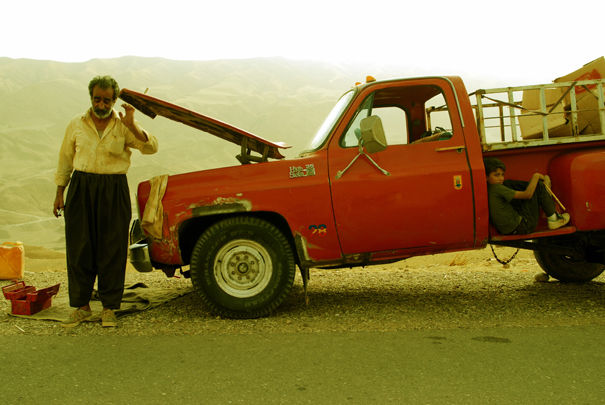Discomfort and Awareness
Iraqi docu-drama SON OF BABYLON from Berlinale Panorama deals with the country's recent past to clear the path towards the future.

SON OF BABYLON
“Making an independent film in Europe is difficult. Making an independent film in Iraq is a nightmare”, stated Mohamed Al-Daradji after the screening of his frightfully intense drama SON OF BABYLON (Iraq, United Kingdom, France, Netherlands, Palestinian Territories). Nevertheless, struggling through this nightmare was undoubtedly worth it.
Iraqi writer and director Mohamed Al-Daradji studied filmmaking in London, and so while he is dealing with themes that are specific to his culture, the film vocabulary he is using is an international one. After the fall of Saddam Hussein’s regime in 2003, the relatives of the one million missing Iraqis started searching for their loved ones. A Kurdish mother from Iraq (Shezad Hussen), along with her twelve year-old grandson (Yasser Talib), starts looking for her son, who was forced to join the army in 1991. At the beginning of the movie, sounds – singing, crying, shouting, mourning – just float over the desert landscapes. But later these sounds pierce the sand and excavate through it to find the macabre truth as the drama slowly evolves. The natural play of non-professional actors, Iraqi landscapes and cityscapes in their post-war skin, the traditional tunes sung by the native people ensures the film’s authenticity and even the documentary flavour. The filming and editing style, however, respects the classical path of lyrical drama construction. This occasionally blunts the sharp edge of the documentary characteristics, making the material easier to bear.
The most relevant aspect of the film is probably its social edge. Mohamed Al-Daradji heard the story from a Kurdish woman and decided to make the film “not for the sake of revenge, but for the sake of forgiveness, so we can look into the future,” he explained to the audience. However comforting this may sound, the film triggers awareness of serious political and social themes that often tend to be swept under the carpet. Still, this comforting approach is probably the only way of resolving these conflicts. One of the most beautiful and strongest scenes of the film is the one where the monologues of the Kurdish protagonist and an Arab woman turn into a dialogue that reaches a depth that goes beyond languages.
The director of the film essentially played the role of psychiatrist for an entire nation, using film as the mediator. Since all the cinemas in Iraq were bombed in the Gulf War, and there is no infrastructure for film (there are only three cinemas in Bagdad at the moment), only foreign audiences can benefit from this mediation. Hopefully, through co-production with Europe, there will be more films made in Iraq in the future – and better means to bring them to Iraqi audiences.


301 Moved Permanently